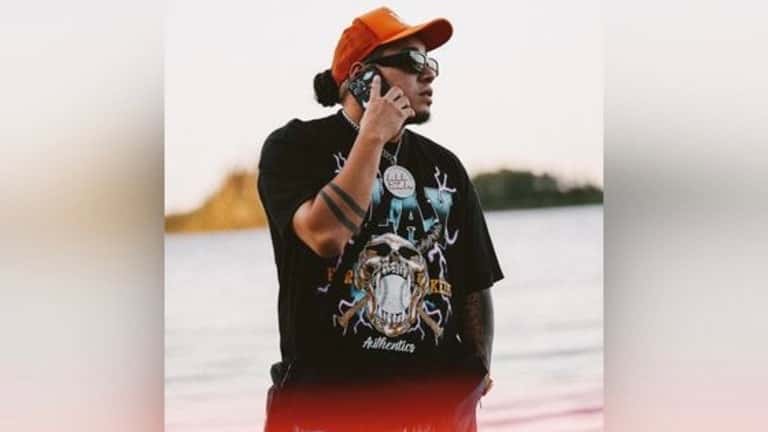
Syndication
A video of four friends driving in a car singing round dance songs was uploaded online in 2013 and went viral, gaining over 2.4 million views on YouTube. Almost 10 years later, one of the singers, Antoine Edwards, received his first International Indigenous Hip Hop Award for best R&B Album of the Year.
Hip-hop celebrated its 50th anniversary this year, influencing the innovation of a new genre that touched many communities including those in Indian Country.
Edwards, also known as AntoineX, is a hip-hop and R&B artist and is Omaha, Oglala and Sicangu Lakota and is based in Omaha, Nebraska. He is also the founder of ALLSZN, a non-profit organization and label that Edwards described as a resource for Native and marginalized youth who are in the creative realm.
“I was raised through music,” he said, sharing that he began singing traditionally around the drum at age 13. “My parents had a real diverse selection growing up, from disco, to gangster rap, to hip-hop to R&B, and we also grew up around the ways, grew up traditionally.”
Edwards said he always had a love for their traditional singing at powwows and in ceremonies and Sundance. In fact, he only listened to traditional music until high school.
He reminisced on a time where his cousin and himself figured out how to put a beat on a Tascam recorder that his father had bought him and they covered a Lil Wayne song featuring his cousin and sister.
“I was like the worst one, it didn't sound good at all but, I just felt like it felt good to do that, just to be able to hear my voice over a beat like that. So I kept going and would just do remixes to my favorite songs,” he said.
Edwards music style is a blend of rap, rhymes and Indigenous-styled melodies with lyrics relating to relatable topics of love and heartbreak that he weaves together in songs such as ‘Patience,’ a song that featured other artists from ALLSZN that went on to win an Native American Music Award for Best Collaboration in a Video.
Edwards reflected on the genre itself, the stereotype on Native rappers and shared what he thinks Indigenous artists bring to hip-hop.
“You know, when I started I'd have five people at a show and then now I'm selling out tours across the nation and I think people are starting to wake up to the fact that native hip hop isn't a joke. It's not something to laugh at, it's something that's worth taking seriously and something that's worth paying attention to,” he said.
Edwards also shared how his music allowed him to be in a position where his listeners are able to relate to the songs he puts out. His audiences cross all ages and he feels honored that multiple generations of people keep up with his music.
He feels hopeful for the future of the Native hip-hop industry, commenting on the difference that the typical subject of competition within the traditional rap world has.
“There's a point in time where Native hip-hop was competitive, which that's the nature of hip hop, is battle rapping and b-boying and all the elements, you know, being competitive,” Edwards said. “But as we move forward, I think what native people bring to hip hop is a sense of community unity. We don't necessarily take that competitive mindset and try to put other artists down, and there was a point in time that that was a thing, but I like that currently we're in a place where artists are uplifting each other.”
Help us keep the fire burning, make a donation to Buffalo’s Fire
For everyone who cares about transparency in Native affairs: We exist to illuminate tribal government. Our work bridges the gap left by tribal-controlled media and non-Native, extractive journalism, providing the insights necessary for truly informed decision-making and a better quality of life. Because the consequences of restricted press freedom affect our communities every day, our trauma-informed reporting is rooted in a deep, firsthand expertise.
Every gift helps keep the fire burning. A monthly contribution makes the biggest impact. Cancel anytime.
Respect The Fire
At Buffalo's Fire, we value constructive dialogue that builds an informed Indian Country. To keep this space healthy, moderators will remove:
- Personal attacks, harassment, or hate speech
- Spam, misinformation, or unsolicited promotion
- Off-topic rants and excessive shouting (All Caps)
Let’s keep the fire burning with respect.






